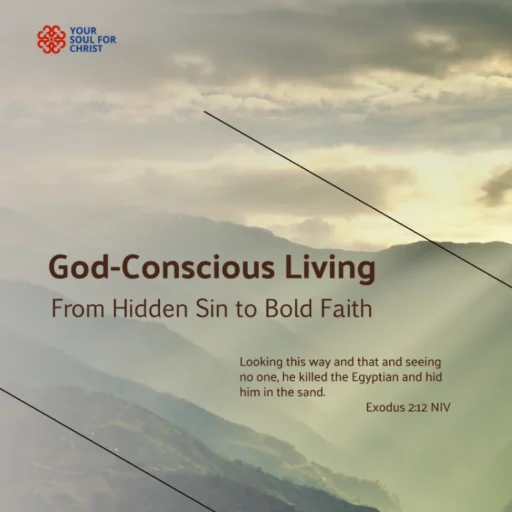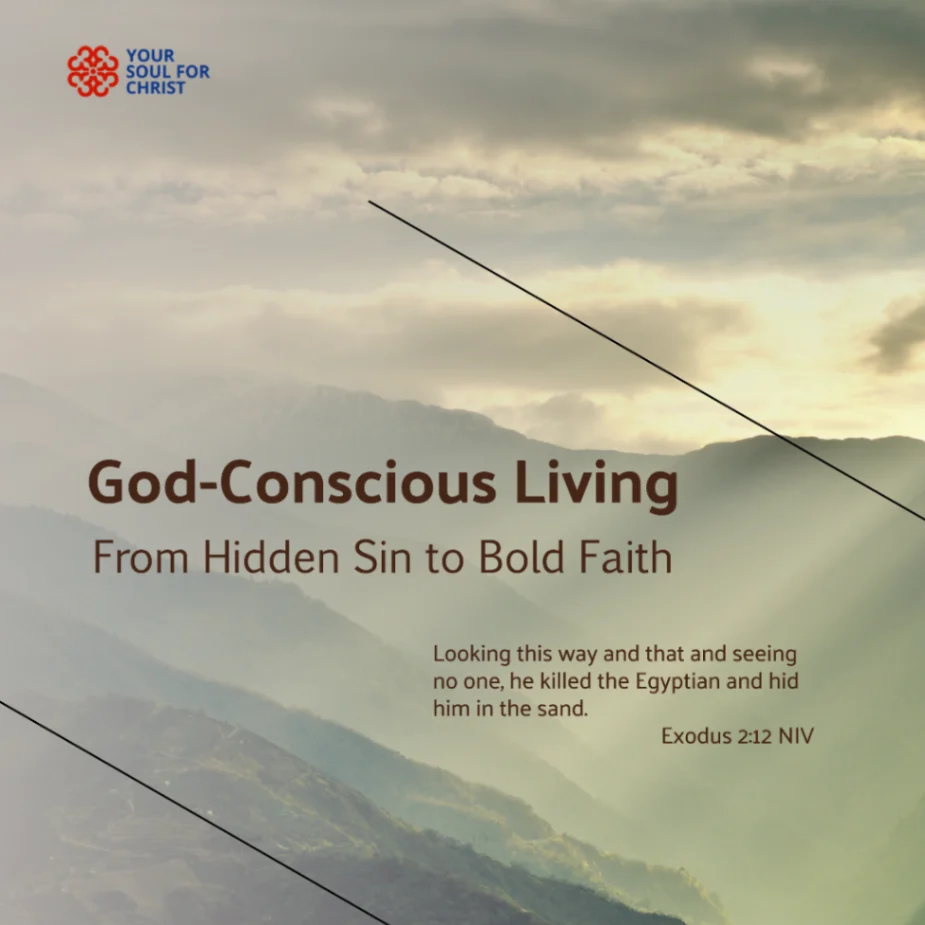Looking this way and that and seeing no one, he killed the Egyptian and hid him in the sand.
Exodus 2:12 NIV
In the quiet lines of Exodus 2, we witness a significant moment in Moses’ early life—a moment that exposes not just his actions but the condition of his heart. When he saw an Egyptian oppressing a Hebrew, one of his own people, Moses reacted decisively: “He looked this way and that, and seeing no one, he killed the Egyptian and hid him in the sand”. At first glance, it might seem like a story of justice gone wrong, but a deeper reflection reveals a profound spiritual insight: at this point, Moses was not yet God-conscious.
Though Moses scanned his surroundings before acting, his awareness was limited to the horizontal. He checked if any person might see him but failed to look upward. His mindset lacked the vital awareness that God sees all—even when no one else does. This absence of God-consciousness meant that Moses was operating without a true sense of divine accountability. His actions, although seemingly noble in motive, were rooted in human reasoning rather than God’s direction.
This spiritual blind spot is something to which many of us can relate. How often do we weigh our words, decisions, or behaviours based on the eyes of others while forgetting the One who sees all? Moses thought he had acted in secret, but the truth quickly surfaced—someone had witnessed it, and the news spread. Even if no one had seen him, God had. That truth is sobering: There is nothing hidden from God’s sight. No deed, no whisper of the heart, escapes His attention. Yet, this should not lead to fear—it should lead us to live with a deep and reverent awareness of His constant presence.
This theme of God-consciousness finds a powerful contrast in the story of Joseph. When tempted by Potiphar’s wife, Joseph didn’t protest on the basis of what Potiphar might think. Instead, he said, “How then could I do such a wicked thing and sin against God?” (Genesis 39:9). Joseph lived with a vertical awareness—one that acknowledged God as the ultimate witness to every action and thought. That God-conscious mindset preserved his integrity and shaped his choices.
Moses, on the other hand, though possibly believing he was defending his people, chose a method that revealed he was not yet acting under divine instruction. His decision to kill and hide the body exposed a heart still leaning to human nature. But God had not given up on him. In time, after a life-altering encounter at the burning bush, Moses returned to Egypt transformed.
Now, he stood before Pharaoh—not in secrecy, but with boldness. He performed signs and wonders openly, challenged injustice with divine authority, and courageously led God’s people. What made the difference? Moses had become God-conscious. The fear of man or impulsive justice no longer scared him. He now walked in step with God’s commands, aware of His presence, and submitted to His leading.
This transformation in Moses offers both encouragement and a challenge. It reminds us that even when we begin our journey with misguided zeal, God can realign our hearts and reshape our focus. We must ask ourselves: are we living to please God or simply to avoid the disapproval of people? Are our decisions shaped by His gaze or by human judgment?
To live righteously, we must cultivate a God-conscious mindset—one that places His approval above all else. It means living not just for the moments others can see but for the unseen moments that only God witnesses. It’s in those quiet decisions, those hidden motives, that we build true integrity.
May we become people who no longer merely “look this way and that,” but who look upward. May our hearts grow ever more God-conscious—daily, intentionally, and with a steady resolve to walk closely with the One who sees, knows, and lovingly leads us.

